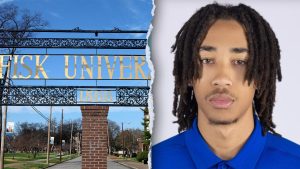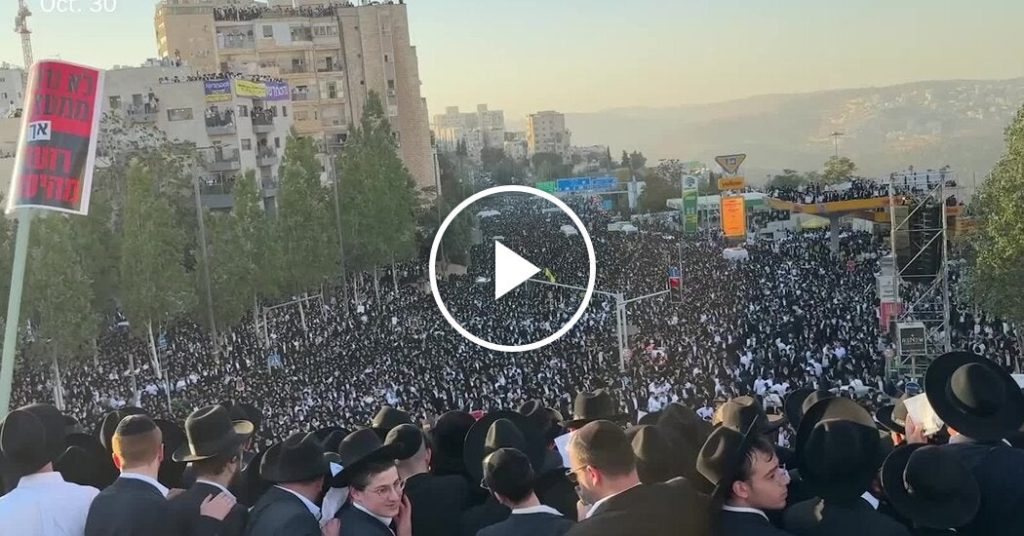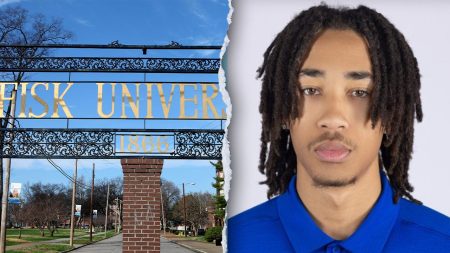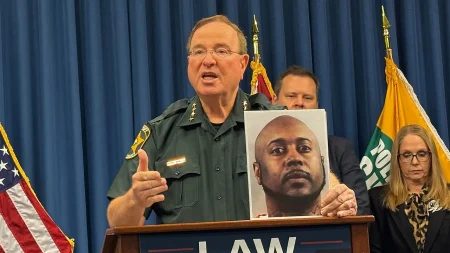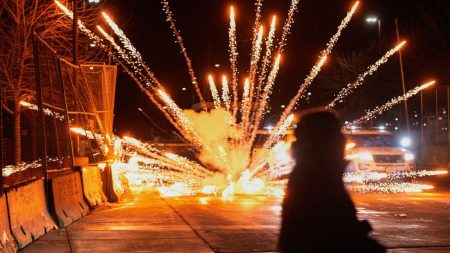Mass Protests Erupt as Ultra-Orthodox Jews Resist Israel’s Military Draft
Historic Demonstration Reveals Deepening Societal Divisions in Israel’s National Security Debate
By James Harrison | Special International Correspondent
In one of the largest demonstrations in Israel’s recent history, hundreds of thousands of ultra-Orthodox Jews flooded the streets of Jerusalem this week to protest against mandatory military conscription. The massive gathering represents a critical flashpoint in the ongoing tensions between the ultra-Orthodox community, known as Haredim, and mainstream Israeli society over the fundamental question of who should bear the responsibility of national defense. “You can’t force people to be otherwise than the way they are,” declared one impassioned protestor, his voice rising above the sea of black hats and traditional garb that characterized the demonstration. “This is us. This is the way we are. You can’t change us. You can’t force people to do otherwise. It’s no good.”
A Nation Divided: The Cultural and Religious Context Behind the Protests
The military draft controversy strikes at the heart of a decades-long cultural conflict in Israeli society. Since the founding of the state in 1948, ultra-Orthodox Jews have received exemptions from mandatory military service based on the argument that their religious study serves as a spiritual protection for the nation. For the Haredi community, Torah study isn’t merely an educational pursuit but a sacred obligation that defines their identity and purpose. Young Haredi men typically dedicate themselves to religious scholarship in yeshivas rather than pursuing secular education or careers. This arrangement functioned relatively smoothly when the ultra-Orthodox were a small minority, but demographic shifts have transformed the equation. With the Haredi population growing at three times the rate of the general Israeli population and now comprising approximately 13% of Israeli citizens, the exemption policy has become increasingly contentious, especially as the country faces persistent security threats requiring substantial military manpower.
National Security Imperatives Versus Religious Identity
Israel’s security establishment has long argued that broadening the draft is a practical necessity in a country facing existential threats from multiple fronts. The Israeli Defense Forces (IDF) operate under a model of citizen-soldiering that depends on universal participation, with most Jewish Israelis serving between two to three years followed by reserve duty well into adulthood. Military service also functions as a crucial socialization mechanism in Israeli society, creating shared experiences and values across diverse communities. “The burden of defense must be shared equitably,” stated Defense Minister Avigdor Mendel in a press conference responding to the protests. “Every citizen has rights and responsibilities. We respect religious practice, but national security requires participation from all sectors of society.” The government’s recent push to increase Haredi enrollment follows several Supreme Court rulings that declared blanket exemptions unconstitutional, creating pressure for a more equitable system that has encountered fierce resistance from religious leaders who view military service as a threat to their way of life.
Inside the Protest Movement: Religious Leaders Rally Community Resistance
The protest movement has been meticulously organized by prominent rabbinical authorities who wield enormous influence within the ultra-Orthodox community. Rabbi Shmuel Berkovitz, a respected leader from Jerusalem’s Mea Shearim neighborhood, articulated the community’s position: “This is not merely a political dispute but an existential matter for our way of life. Military service exposes our young men to influences that contradict our religious values and disrupts the continuous Torah study that sustains the Jewish people spiritually.” The demonstration showcased remarkable solidarity across typically divided Haredi sects, with Lithuanian, Hasidic, and Sephardic ultra-Orthodox groups setting aside internal differences to present a unified front. Young yeshiva students stood alongside elderly rabbis, families with children, and women from the community in a powerful visual testament to their collective resolve. Many protestors carried signs with biblical quotations emphasizing the primacy of religious study, while others displayed messages rejecting state interference in religious matters.
Beyond the Headlines: Understanding the Deeper Social Implications
The military draft controversy represents more than a disagreement over service requirements; it reflects fundamental questions about Israeli identity and citizenship in a self-defined Jewish state. For many secular Israelis, military service constitutes a cornerstone of national contribution and social integration. They view Haredi exemptions as unfair privilege, especially as they watch their own children risk their lives in military operations. Conversely, the ultra-Orthodox community perceives attempts to draft their youth as an assault on their religious liberty and way of life. “The secular public fundamentally misunderstands our position,” explained sociologist Dr. Rachel Feldman, who specializes in ultra-Orthodox communities. “For Haredim, preserving their religious lifestyle isn’t selfishness but protecting what they genuinely believe is essential for Jewish continuity. Meanwhile, secular Israelis genuinely can’t comprehend why anyone would avoid what they see as a sacred national duty.” This mutual incomprehension has fostered growing resentment on both sides, with polls indicating record levels of distrust between religious and secular citizens.
Searching for Solutions: Political Complexities and Potential Compromises
The political dimensions of this conflict add further complexity to an already fraught situation. Ultra-Orthodox political parties hold significant power in Israel’s coalition government system, often serving as kingmakers in the formation of ruling majorities. This political leverage has historically enabled them to preserve exemptions despite court rulings and public pressure. The current government’s attempt to implement a compromise proposal—offering limited conscription with special accommodations for religious practices—has satisfied neither side. Secular parties demand greater Haredi participation, while religious leaders reject any mandatory service. Security experts like retired General Moshe Kaplinsky have proposed alternative service models that could accommodate religious concerns while meeting national needs: “We need creative thinking here. Perhaps specialized units with strict religious observance, alternative civil service options, or graduated integration programs could bridge these divides.” As the demonstrations continue and tensions escalate, finding a sustainable solution becomes increasingly urgent for a nation that requires both military readiness and social cohesion.
The Path Forward: Implications for Israel’s Future as a Democratic Jewish State
The resolution of this conflict will significantly influence Israel’s development as both a Jewish state and a modern democracy. The challenge lies in balancing democratic principles of equality and shared responsibility with respect for religious freedom and pluralism. “This is ultimately about what kind of society Israel wants to be,” noted constitutional scholar Professor Daniel Friedman. “Can it accommodate profound religious differences while maintaining functional state institutions? Can it respect minority rights while upholding majority decisions? These are questions democracies worldwide struggle with, but they take on particular urgency in Israel’s unique context.” As the crowds of protesters gradually dispersed from Jerusalem’s streets, their message lingered powerfully: “This is us. This is the way we are.” The government now faces the delicate task of responding to this declaration while addressing legitimate national security concerns and broader societal expectations. Whatever path emerges will undoubtedly shape Israeli society for generations to come, determining whether diverse communities can coexist within a unified national framework or whether the fissures between them will continue to deepen, challenging the very foundations of the state itself.
James Harrison is an award-winning international correspondent specializing in Middle Eastern affairs and religious conflict. His reporting has appeared in major publications worldwide.

